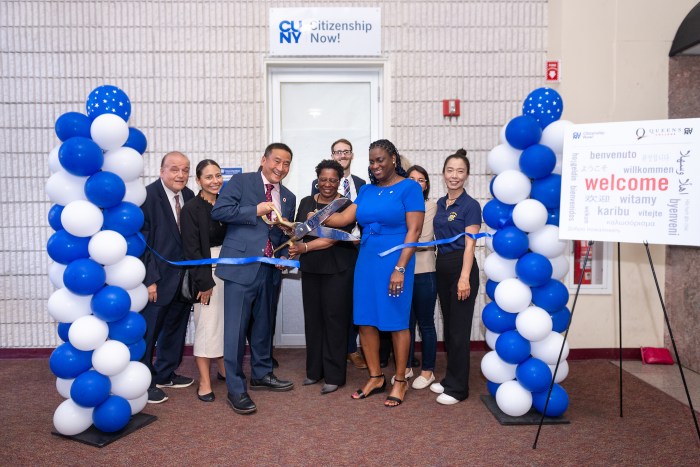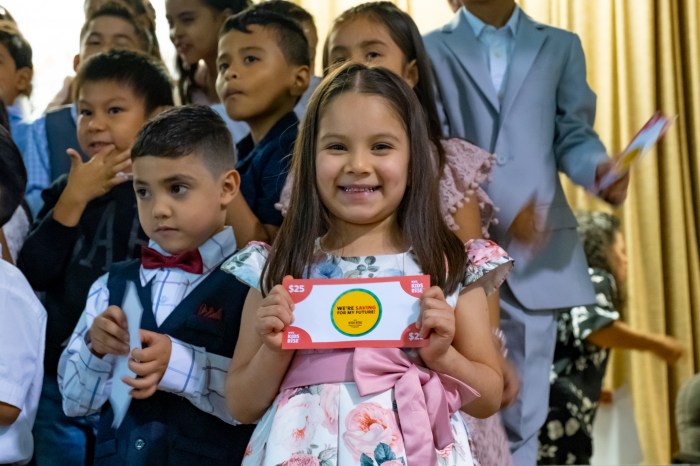Queens College is kicking off its Black History Month celebration with a year-long exploration of the African American experience for both students and the public — free of charge.
“This year we are expanding from the limitation of a single month to more broadly explore the essential part African Americans have played in the history of our country,” said Queens College President Felix Matos Rodriguez. “So we’ll offer related events throughout the year for the benefit of our students and community.”
The Black Business Expo — among several other campus events — on Wednesday, Feb. 27, will provide an opportunity for students to network with successful African American business owners and learn how they were able to build their enterprises. The business owners will, in turn, be able to promote their businesses to the student body.
The free event is open to the students and public in the President’s Lounge inside the main dining hall from 5 p.m. to 9.pm.
The college will continue its celebration with a series of monthly Lunch and Discussion sessions on Wednesday, Feb. 6, in the Patio Room during Free Hour, from 12:15 to 1:30 p.m. The events — sponsored by the Queens College Office of the President — are only open to students, faculty, and staff. It will encourage participants to interact over lunch with people they may not know too well. Each date will be structured around a particular question, topic, or performance that serves to drive the discussion.
The theme for the college’s month-long celebration is Sankofa: knowing the past to move into the future, which is reflected in many of the planned events.
Sankofa is a word from the Akan people of Ghana. Artists, poets, musicians, and historians whose work is linked to the people of the Caribbean will be featured when the Queens College Caribbean Students Association hosts “Our Story,” a celebration of art and artists from across the Caribbean in the Student Union Ballroom on Thursday, Feb. 28 from 9 a.m. to 5 p.m. This event is free and open to the public.
During another program on Monday, Feb. 25, students will share recollections from their participation in the school’s ongoing In the Footsteps of Dr. King program. Each year a group of students makes a journey through the historic landscape of the civil rights movement in Georgia and Alabama guided by veterans of that struggle who worked with Martin Luther King, Jr.
Presentations will take place in the Student Union Ballroom West, during Free Hour, from 12:15 to 1:30 p.m. This event is free and open to the public.
Queens College hopes to better reflect the significance of contributions made by African Americans. At the same time, the college—which has students from more than 150 nations—will draw parallels between the experiences of diverse groups on campus and African-Americans, beginning conversations, finding common ground, and educating all participants.
The college has long played a role in the struggle of African Americans for equal rights. In May 1965, King was the first speaker in the collegeʼs John F. Kennedy Memorial Lecture Series, highlighting the power of peaceful resistance in his remarks. “Nonviolence,” Dr. King said, “is the most potent weapon available to oppressed people in their struggle for freedom and human dignity.”
A year earlier, during the Freedom Summer voter-registration project in Mississippi, Queens College student Andrew Goodman was murdered along with fellow civil rights workers James Chaney and Michael Schwerner. The collegeʼs Rosenthal Library clock tower is named for the three men. Over the years, the college has honored civil rights pioneers such as Aaron Henry, who received the Queens College Medal in 1990, and John Lewis, who received an honorary degree in 2009.
Many prominent African Americans have graduated from Queens College, including Queens Borough President Helen Marshall, New York Assemblywoman Barbara Clarke, New York Urban League Chairman Noel Hankin, former Vice Chairman of the CUNY Board of Trustees Philip Berry, and Olympic medalist Gail Marquis.

































